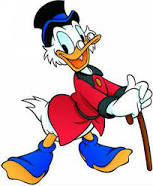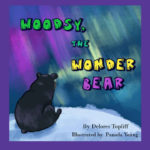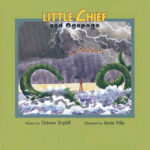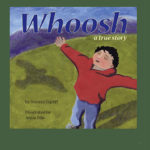 Who hasn’t heard of Scrooge? Or seen a cold-hearted miser and been sure they’ve met Scrooge’s brother? (Disney even recreated the Dickens character as Scrooge McDuck.) Or we may meet a total optimist whose personality cheers us all and recognize a Pollyanna. Memorable fiction characters from beloved books are so familiar, their names enter our daily lives and vocabulary. Here are more from an almost endless list:
Who hasn’t heard of Scrooge? Or seen a cold-hearted miser and been sure they’ve met Scrooge’s brother? (Disney even recreated the Dickens character as Scrooge McDuck.) Or we may meet a total optimist whose personality cheers us all and recognize a Pollyanna. Memorable fiction characters from beloved books are so familiar, their names enter our daily lives and vocabulary. Here are more from an almost endless list:
Quixotic comes from Cervantes’ novel,
Don Quixote. The hero is a gangling, near-sighted idealist who sets out to revive chivalry, undo wrongs, and restore justice to the world. His peasant squire, Sancho Panza, is the perfect foil to highlight his master’s unreasonableness while literally tilting at windmills on his knightly quest. Today it describes those who are extravagantly chivalrous or romantic, impractical visionaries. I enjoy being around them more than the lovable but sad, pessimistic thistle-eating donkey Eeyores from A. A. Milne’s Winnie-the-Pooh books.
Most say that Don Quixote partially inspired Don Juan, a fiction symbol for libertinism. At the height of his infamy, he seduces a girl of noble family and kills the father avenging her. His vitality, humor, and arrogance, are dramatic tension building to his deserved fall. His name stands for debauchery today.
Frankenstein is a creature dreamed of and then developed by Mary (Mrs. Percy) Shelley for a contest challenge she and her husband and friends initiated while touring Europe for who could write the best horror story. Her tale is of an obsessed scientist who assembles a living being from parts of exhumed corpses who then terrorizes his creator. She won, hands down, and the name entered our experience.
The Grinch, from Dr Seuss’s How The Grinch Stole Christmas!, is a nicer green but grouchy, cave-dwelling monster. Today Grinch describes any spoilsport or grump. I’d rather see than be one—and they do live among us.
Jeeves, the brilliant gentleman’s gentleman who repeatedly extricates the wealthy young man he serves from trouble, appeared in PG Wodehouse’s stories and novels for many years. Today his name represents capable people who consistently provide faultless answers for any social occasion.
Malapropropisms connect to Mrs Malaprop, a character in Sheridan’s 1775 play, The Rivals. Known for her muddled use of language, her name comes from the French phrase mal à propos, meaning “misplaced” or “wrongly positioned”. Her lines include many entertaining unintentional terrors. Today the term stands for a comical misuse of words resembling others in sound. Here are some fun ones: He had to use a fire distinguisher. Dad says the monster is just a pigment of my imagination. Good punctuation means not to be late. He’s a wolf in cheap clothing.
Many other endearing (or unendearing) characters deserve mention. Tell us who you believe should also be on this list, and why?






Leave a Reply